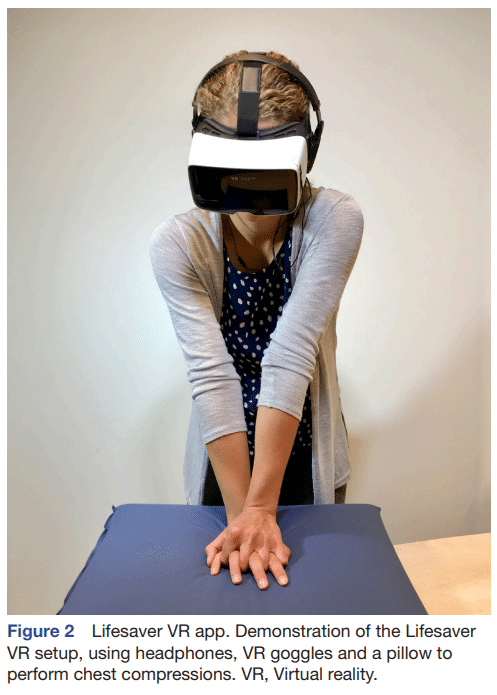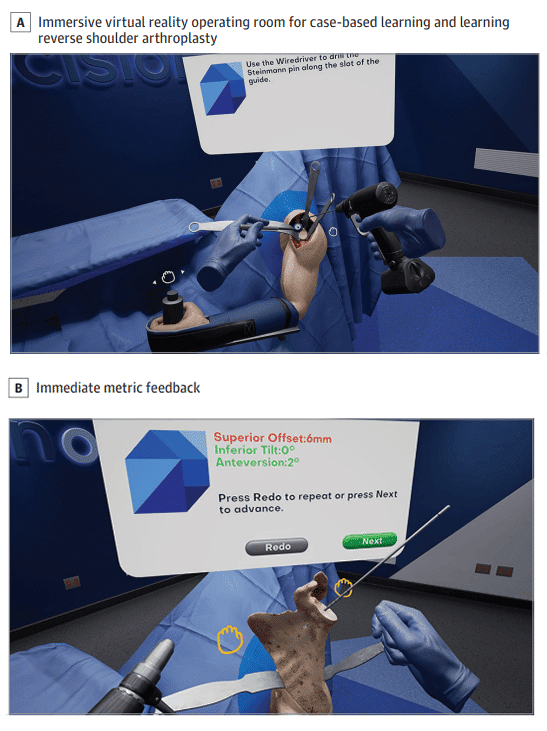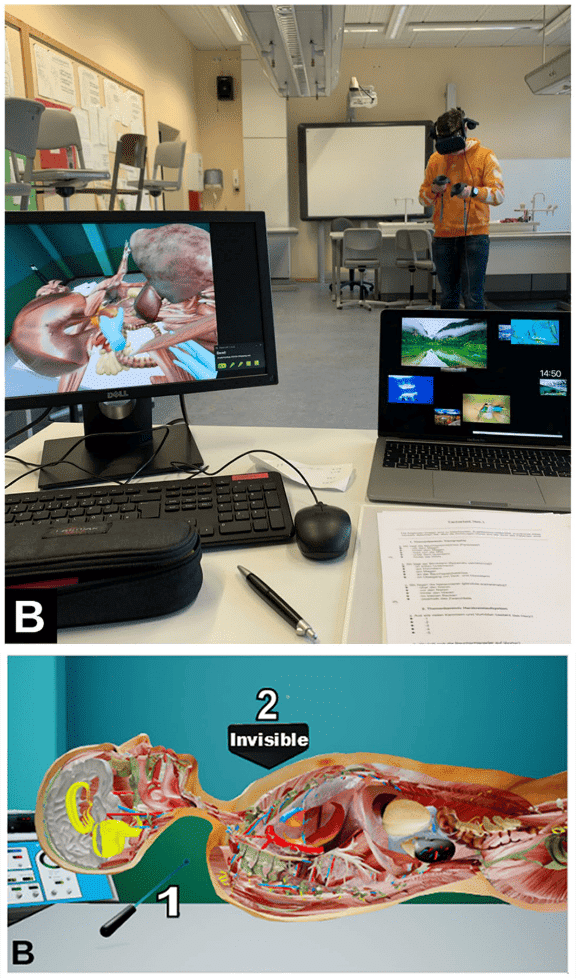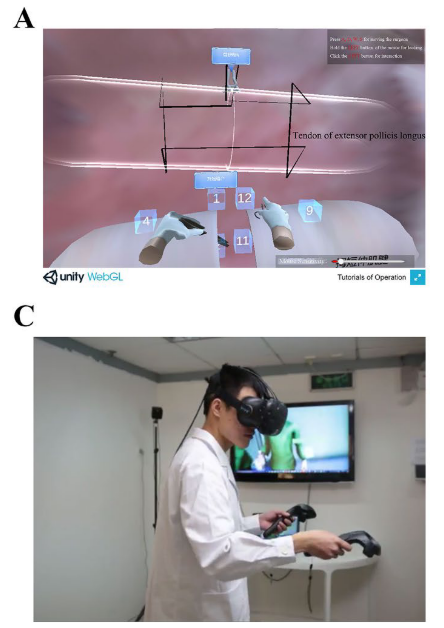In this month’s research roundup, I’m addressing a frequently cited limitation in medical simulation research using immersive technologies: the scarcity of long-term or direct skills transfer evaluation.
While we at i3 Simulations are actively generating evidence on this front, I’d like to present a selection of studies that demonstrate direct skills transfer and long-term skills retention following the use of immersive XR technology:
Rationale and Design of the Lowlands Saves Lives Trial: A Randomised Trial to Compare CPR Quality and Long-Term Attitude Towards CPR Performance Between Face-to- Face and Virtual Reality Training With the Lifesaver VR App.
Nas, J. et al. (2019), BMJ Open
The randomised trial, conducted at a music festival, found that VR training produced similar CPR quality to instructor-led training in terms of chest compression depth and rate.
Importantly, follow-up questionnaires at 6 months assessed long-term retention of skills and attitudes towards performing CPR. The researchers concluded that easily accessible, low-cost VR apps may be an effective way to provide CPR training to a broader population and maintain skills over time.
This innovative approach could help increase bystander CPR rates and ultimately improve survival from cardiac arrest.


Effectiveness of Immersive Virtual Reality on Orthopedic Surgical Skills and Knowledge Acquisition among Senior Surgical Residents: A Randomised Clinical Trial
Lohre, R. et al. (2020), JAMA Network Open
The researchers calculated a Transfer Effectiveness Ratio of 0.79, meaning that 1 hour of VR training was equivalent to 47.4 minutes of real operating room experience. This suggests significant potential for accelerating the learning curve outside the operating room.
Based on analysis of early learning curves from multiple studies, the researchers estimated that the VR training could reduce the number of real-world procedures needed to achieve proficiency by 13 to 51 cases.
Importantly, the VR-trained residents demonstrated superior performance on objective skills assessments even after only a single training session, indicating rapid and effective skills transfer to a realistic cadaver model.
Immersive Anatomy Atlas: Learning Factual Medical Knowledge in a Virtual Reality Environment
Gloy, K. et al. (2022), Anatomical Sciences Education
High school students with no prior formal medical training were randomly assigned to either use the VR atlas or anatomy textbooks to answer anatomical questions. Several weeks later, participants completed a second test to assess long-term retention.
The study found that students who used the VR atlas performed significantly better on the delayed test compared to those who used textbooks, demonstrating improved long-term retention of anatomical knowledge. The researchers concluded that learning with the immersive VR atlas led to better memory retention and more efficient knowledge acquisition than traditional methods.
The authors suggest the improved retention may be due to the VR environment’s high immersion and ability for students to freely and interactively explore realistic 3D anatomy models. This active, self-directed learning approach aligns with constructivist learning theories and may enhance encoding and recall of anatomical information.


Researching the Application of Virtual Reality in Medical Education: One-Year Follow-Up of a Randomised Trial
Gan, W. et al. (2023), BMC Medical Education
This one-year follow-up study of medical students who received virtual reality (VR) training for tendon suturing revealed some promising long-term effects on skills transfer and learning habits.
Students in the VR group demonstrated more determined career pursuit and active learning during their clinical internships, achieved significantly better overall scores in surgical rotations, and performed better on specific clinical skills like physical examination, suturing, and image reading in their final examinations.
These findings suggest that the initial VR intervention may have acted as a catalyst in developing improved learning models for the students, leading to sustained benefits in certain areas even a year later.
The authors propose that more extensive, multidisciplinary VR interventions could potentially enhance long-term skills transfer in medical education, while acknowledging the need for further research to fully understand and optimise the long-term impact of VR-based training.
What did the research find?
The collective findings from these studies indicate that VR training in medical education shows promising results for long-term skills transfer and retention. Across various medical disciplines, VR-trained participants demonstrated improved performance on practical assessments weeks to months after initial training.
They exhibited better knowledge retention, more efficient skill acquisition, and in some cases, sustained improvements in clinical skills up to a year later. While traditional methods remain important, these studies suggest that VR technology can be a powerful tool for enhancing long-term learning outcomes in medical education.
To find out more information about XR technology in simulation training, check out our evidence overview, trial the training software, or contact us for more information and any research questions!





